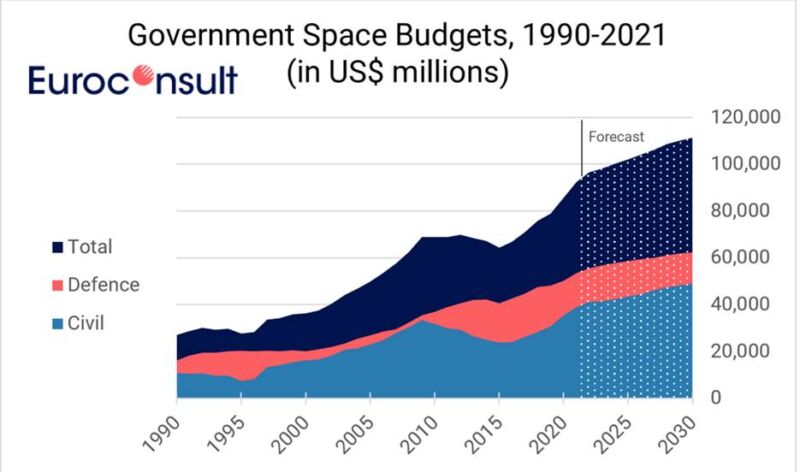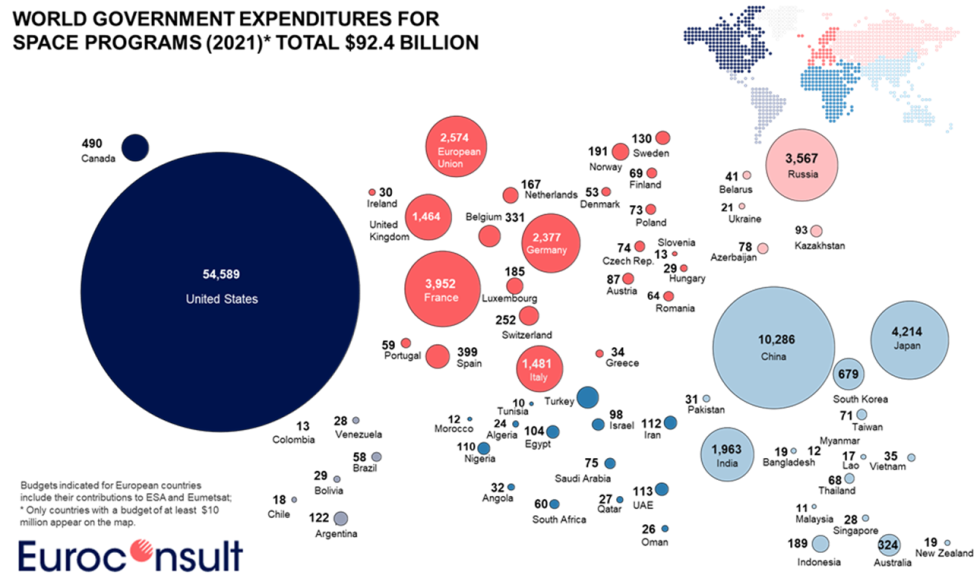
Nations around the world spent a total of $92 billion on the "space sector" in 2021, the market intelligence firm Euroconsult reports. This represents an 8 percent increase in spending from the year 2020.
In the latest edition of the report "Government Space Programs," the consulting firm says that civilian space activities accounted for $53 billion of the spending, and defense activities $39 billion. However the report noted that the proportion of defense spending is increasing.
"Geopolitical tensions, increasing rivalry between leading space powers, and the value of space as the ultimate high ground drive the militarization of space trend, with leaders increasing their investments in defense space assets and technologies," a news release about the report states.
Overall spending on spaceflight activities has increased by nearly 50 percent since 2015, the report finds. Total spending is expected to reach about $110 billion annually by 2030.
The report also breaks down spending by nations, with the United States accounting for more than half of the global spending on spaceflight activities—$54.6 billion in 2021. About half of this went toward civil spaceflight activities such as NASA and supporting commercial space, and the other half went to defense programs in the Space Force, Air Force, and other parts of the Department of Defense.
China spend the second greatest amount of money, $10.3 billion, as it supports a robust program of civil activities including a low-Earth orbit space station and lunar exploration program, as well as military activities. Japan, France, and Russia were the next three biggest spenders.
This kind of data offers helpful perspective for assessing the achievements of individual nations in space. For example, with a budget of just $113 million, the United Arab Emirates has been able to partner with US universities to launch a successful, small mission to Mars. And while NASA clearly has the most ambitious and far reaching portfolio of space activities, it has a budget to match.
reader comments
113